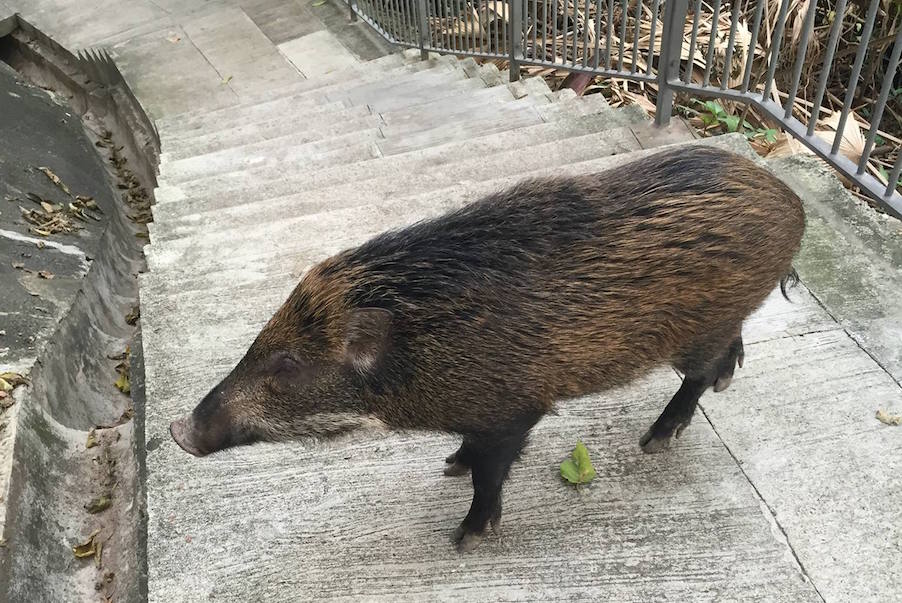If 2018 felt more like the year of the boar than the dog indicated on the Chinese zodiac, you’re probably onto something.
According to the Agriculture, Fisheries and Conservation Department (AFCD), there were 679 reports of wild boar sightings in Hong Kong through the first 10 months of 2018. That’s about 68 complaints per month in 2018, putting the year on track for the most wild board complaints since the government started compiling the numbers in 2013.
The 738 wild boar complaints in 2017 works out to 62 complaints per month. For some perspective, there were only 294 complaints in the entirety of 2013.
The numbers were revealed yesterday by Environment Secretary Wong Kam-sing in response to a written question by lawmaker Regina Ip Lau Suk-yee, who expressed concerns that the city’s wild boar population were expanding into urban areas and “posing serious threats to the personal safety of members of the public.”
The figures show that Hong Kong’s Southern District — which includes areas like Pok Fu Lam, Repulse Bay, Stanley and Wong Chuk Hang — was the worst-affected district, with 173 wild boar complaints.
Other districts recording a large number of wild boar complaints include Sai Kung (86), Central and Western (70), and Wan Chai (69). The AFCD figures also revealed that there were five cases in which people were injured through the first 10 months of the year.
Among them was one we reported on in October, when a wild boar attacked three people in Wong Tai Sin.
Before that, two men in a village in Ma On Shan also reported being attacked by wild boars near a garbage station in the village; and in July, two people were injured in a wild boar attack near the University of Hong Kong.
Not all wild boar sightings in Hong Kong last year were dangerous, of course. This wild boar in Aberdeen, for instance, was filmed gatecrashing a Sunday afternoon picnic at a barbecue site.
The Environment Secretary also provided an update on the AFCD scheme known as the “Capture, Contraception and Relocation/Release Programme” — a program intended to reduce the size of the wild boar population. It replaced the AFCD’s wild boar hunting scheme, which saw 91 of the animals killed between 2014 to 2016.
Under the pilot scheme, wild boars are captured, sterilized, fitted with a GPS tracking device, then relocated or released into the wild.
The program was officially launched in February 2018, and the AFCD revealed that as of December, the AFCD had captured and sterilized 54 wild boars.
The AFCD said they’re expected to complete an evaluation of the program by the end of 2019.
As Coconuts Hong Kong reported last March, the increasing number of wild boar complaints is partly a result of the city’s growing wild boar population, with experts concerned that the growing wild boar population is becoming unsustainable.




